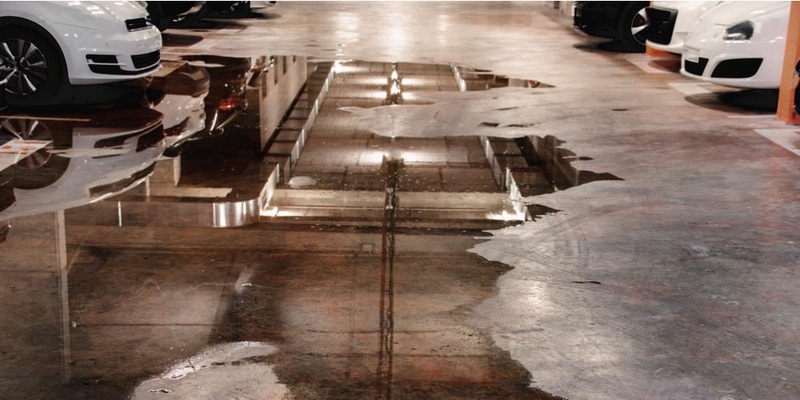
If you are not redirected within 30 seconds, please click here to continue.
Samedi: 10h – 16h HAE

If you are not redirected within 30 seconds, please click here to continue.
If you are not redirected within 30 seconds, please click here to continue.
What happens if my car floods in underground parking?

This article has been updated from a previous version.
In the age of climate change, flooding is an increasing threat to communities, more so than it has been in earlier decades. Several weather patterns, such as sudden and heavy rainfall and other storms, can damage homes and cars.
Whether caused by snowmelt runoff, storms, or unexpected flash floods, the Insurance Bureau of Canada (IBC) estimates that severe weather caused $2.1 billion of damage in 2021.
According to the IBC, the most common cause of flood damage is overflowing rivers, which leads to roads being flooded, vehicles submerged in water, flooding basements, sewer backups, roofs leaking and shifting home foundations.
For vehicles damaged by floods, the IBC says, “Any vehicle that was flooded up to the bottom of the dash must be branded as non-repairable and can no longer be operated on any Canadian road. Every Canadian jurisdiction follows this same guideline.”
A vicious storm can cause considerable damage to your vehicle, which highlights the need to have adequate car insurance coverage.
Many drivers may assume they have ample insurance protection to deal with a flood. But what if your car is flooded while it’s parked in an underground lot?
What happens if your car is flooded in an underground parking lot in a condo building?
Most condo corporations have insurance for the building, as well as the common areas. Tenants or unit owners typically pay the building’s insurance premium as part of their monthly maintenance fees, but they should also consider either condo insurance (for unit owners) or tenant insurance (for renters) to protect their personal belongings.
Be advised, though: a condo corporation’s insurance policy does not automatically cover the damage to a vehicle parked in an underground lot. Even though the parking garage may be considered a common area, the building may not be responsible for your car in the event of flooding.
If a flood damages your car, you would file a claim with your insurance company for repairs. In general, damage to vehicles from wind, hail, or water is usually covered under your auto policy, provided you have either comprehensive insurance or all-perils coverage (both of these coverages are optional additions to your policy).
If there is damage to the building’s underground parking lot, those damages will be covered by the condo corporation’s master policy. Mitigating flood damage while your vehicle is parked is one thing, but what about while driving? Fortunately, you can take steps to avoid getting caught in a flood while on the road.
What to do if you are caught in flooded road conditions
It’s best to stay off the roads during flood conditions. However, if you do find yourself driving in such a situation, here are a few safety tips to follow:
- Take alternative routes. You may not be able to gauge the condition of the road or the depth of the water in a flood, and you could risk severely damaging your vehicle.
- Be on the lookout. Watch for road damage, downed wires and loose objects on the roadway.
- Avoid flooded areas. Just 15 centimetres of water can cause a vehicle’s engine to stall. That could cause significant damage to your car, and you could be stranded in a less than ideal situation.
- Do not restart your car. If your engine does stall, do not try to restart it. That could cause further damage.
- Drive slowly. If you have no other choice but to drive through the water, drive slowly to avoid splashing water onto the engine or running the risk of hydroplaning. Moreover, your brakes may not work as expected when wet.
- Remain calm. If flood waters surround your car, turn on your headlights and hazard lights so emergency crews and other drivers can see you. Get out and make your way to higher ground if it is safe to do so. If it’s unsafe, climb onto the roof of your car and dial 911 for help.
- Get a vehicle inspection. Have a mechanic inspect your vehicle if you have driven through water or suspect your vehicle may have water damage.
Taking the time to ensure you have adequate car insurance and home insurance coverage to safeguard your vehicle and property from the threat of flood damage is of the utmost importance.
Interested in creating content with RATESDOTCA? Contact us at email@rates.ca.
Get money-saving tips in your inbox.
Stay on top of personal finance tips from our money experts!









